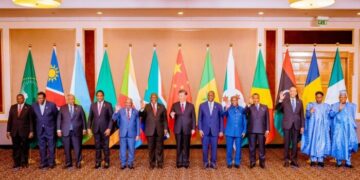The Nigerian music industry, known for its talent and global influence, experienced a notable slowdown in the emergence of new stars in 2024. While established artists continued to dominate the charts and stages, the anticipated influx of fresh talent did not materialize as expected.
This article delves into the multifaceted reasons behind this phenomenon, examining economic challenges, infrastructural limitations, and industry dynamics that have impacted the rise of new artists.
Economic Challenges and Their Impact on Emerging Artists
In 2024, Nigeria grappled with significant economic hurdles, including persistent poverty, unprecedented inflation, and a precarious business environment. These macroeconomic factors have had a profound effect on the music industry, particularly on emerging artists. The lack of adequate government support for creative industry initiatives has further exacerbated these challenges, making it increasingly difficult for new talents to break into the industry.
Infrastructural Limitations Hindering Talent Development
The Nigerian music industry has long struggled with infrastructural deficiencies, which have become more pronounced in 2024. Many artists operate without access to adequate facilities, hindering their ability to produce high-quality music and perform at optimal levels. This lack of proper infrastructure has made it challenging for new artists to gain the necessary exposure and resources to succeed.
Challenges in Digital Music and Copyright Protection
The digital music landscape in Nigeria faces significant challenges, including infrastructure limitations, copyright infringement, and cybersecurity concerns. These issues have created a complex environment for emerging artists, making it difficult for them to monetize their work effectively and protect their intellectual property. Strengthening digital infrastructure and implementing effective anti-piracy measures are crucial for the growth of Nigeria’s music industry.
The Dominance of Established Artists
In 2024, established artists continued to dominate the Nigerian music scene, overshadowing new talents. Artists like Burna Boy, Wizkid, and Davido maintained their prominence, making it challenging for emerging artists to gain the necessary attention and support. The success of these established artists has set a high bar, creating a competitive environment that is difficult for newcomers to navigate.
The Role of Record Labels and Industry Gatekeepers
Record labels and industry gatekeepers play a pivotal role in shaping the careers of new artists. In 2024, the industry witnessed significant shifts, such as Shallipopi’s launch of Plutomania Records in October 2023. While this move signaled a potential avenue for new talent, the subsequent split from Dapper Music in November 2024 highlighted the challenges within the industry. Such dynamics can create uncertainties for emerging artists seeking stable platforms to showcase their talents.
Economic Reforms Affecting the Music Industry
The economic reforms implemented by President Bola Tinubu in 2024, including the removal of fuel subsidies and the devaluation of the naira, led to increased inflation and eroded purchasing power. These changes have had a direct impact on the music industry, affecting both artists and audiences. The resulting economic strain has led to reduced spending on entertainment, affecting the viability of live performances and music sales, which are crucial for the success of new artists.
The Need for Structural Reforms and Support Systems
To address the slowdown in the emergence of new stars, there is a pressing need for structural reforms and robust support systems within the Nigerian music industry. This includes investing in infrastructure, strengthening copyright laws, and providing financial support to emerging artists. By creating an environment that nurtures talent and fosters creativity, the industry can overcome the current challenges and pave the way for the next generation of stars.
Conclusion
The slowdown in the breakout of new stars in the Nigerian music industry in 2024 is a multifaceted issue influenced by economic challenges, infrastructural limitations, and industry dynamics. Addressing these challenges requires a concerted effort from all stakeholders, including the government, industry professionals, and the artists themselves. By fostering a supportive environment and implementing necessary reforms, Nigeria can revitalize its music industry and continue to produce world-class talent.






































Discussion about this post